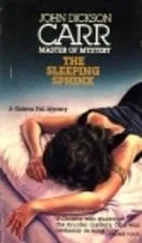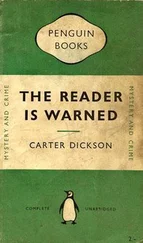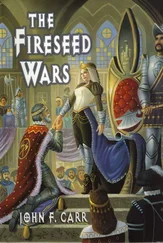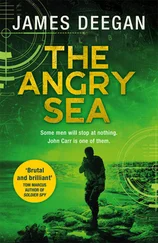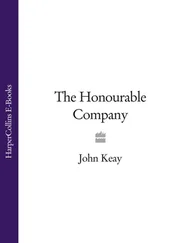John le Carré - The Honourable Schoolboy
Здесь есть возможность читать онлайн «John le Carré - The Honourable Schoolboy» весь текст электронной книги совершенно бесплатно (целиком полную версию без сокращений). В некоторых случаях можно слушать аудио, скачать через торрент в формате fb2 и присутствует краткое содержание. Год выпуска: 1977, ISBN: 1977, Жанр: Триллер, на английском языке. Описание произведения, (предисловие) а так же отзывы посетителей доступны на портале библиотеки ЛибКат.
- Название:The Honourable Schoolboy
- Автор:
- Жанр:
- Год:1977
- ISBN:0-340-49490-5
- Рейтинг книги:5 / 5. Голосов: 1
-
Избранное:Добавить в избранное
- Отзывы:
-
Ваша оценка:
- 100
- 1
- 2
- 3
- 4
- 5
The Honourable Schoolboy: краткое содержание, описание и аннотация
Предлагаем к чтению аннотацию, описание, краткое содержание или предисловие (зависит от того, что написал сам автор книги «The Honourable Schoolboy»). Если вы не нашли необходимую информацию о книге — напишите в комментариях, мы постараемся отыскать её.
The Honourable Schoolboy — читать онлайн бесплатно полную книгу (весь текст) целиком
Ниже представлен текст книги, разбитый по страницам. Система сохранения места последней прочитанной страницы, позволяет с удобством читать онлайн бесплатно книгу «The Honourable Schoolboy», без необходимости каждый раз заново искать на чём Вы остановились. Поставьте закладку, и сможете в любой момент перейти на страницу, на которой закончили чтение.
Интервал:
Закладка:
Two: Sam Collins should 'go in'.
This second decision was reached in consultation with Connie Sachs alone. It finds no mention on Jerry's main dossier, but only in a secret appendix later released, with deletions, for wider scrutiny.
The fragmenting effect upon Jerry of these delays and hesitations was something not the greatest intelligence chief on earth could have included in his calculations. To be aware of it was one thing — and Smiley undoubtedly was, and even took one or two steps to forestall it. To be guided by it, to set it on the same plane as the factors of high policy which he was having daily fired at him, would have been downright irresponsible. A general is nothing without priorities.
The fact remains that Saigon was the worst place on earth for Jerry to be kicking his heels. Periodically, as the delays dragged on, there was talk at the Circus of sending him somewhere more salubrious, for instance to Singapore or Kuala Lumpur, but the arguments of expediency and cover always kept him where he was: besides, tomorrow everything might change. There was also the matter of his personal safety. Hong Kong was not to be considered, and in both Singapore and Bangkok Ko's influence was sure to be strong. Then cover again: with the collapse approaching, where more natural than Saigon? Yet it was a half life Jerry lived, and in a half town. For forty years, give or take, war had been Saigon's staple industry, but the American pullout of seventy-three had produced a slump from which, to the end, the city never properly recovered, so that even this long-awaited final act, with its cast of millions, was playing to quite poor audiences. Even when he took his obligatory rides to the sharp end of the fighting, Jerry had a sense of watching a rained-off cricket match where the contestants wanted only to go back to the pavilion. The Circus forbade him to leave Saigon on the grounds that he might be needed elsewhere at any moment, but the injunction, literally observed, would have made him look ridiculous, and he ignored it. Xuan Loc was a boring French rubber town fifty miles out, on what was now the city's tactical perimeter. For this was a different war entirely from Phnom Penh's, more technical and more European in inspiration. Where the Khmer Rouge had no armour, the North Vietnamese had Russian tanks and 130 millimetre artillery which they drew up on the classic Russian pattern wheel to wheel, as if they were about to storm Berlin under Marshal Zhukov, and nothing would move till the last gun was laid and primed. He found the town half deserted, and the Catholic church empty except for one French priest.
'C'est terminé,' the priest explained to him simply. The South Vietnamese would do what they always did, he said. They would stop the advance, then turn and run.
They drank wine together staring at the empty square.
Jerry filed the story saying the rot this time was irreversible and Stubbsie shoved it on the spike with a laconic, 'Prefer people to prophecies Stubbs.'
Back in Saigon, on the steps of the Hotel Caravelle, begging children peddled useless garlands of flowers. Jerry gave them money and took their flowers to save them face, then dumped them in the wastepaper basket in his room. When he sat downstairs they tapped on the window and sold him Stars and Stripes. In the empty bars where he drank, the girls collected round him desperately as if he was their last chance before the end. Only the police were in their element. They stood at every corner in white helmets and fresh white gloves, as if already waiting to direct the victorious enemy traffic when it arrived. In white jeeps, they rode like monarchs past the refugees in their birdcoops on the pavement. He returned to his hotel room and Hercule rang, Jerry's favourite Vietnamese, whom he had been avoiding for all he was worth. Hercule, as he called himself, was anti-establishment and anti-Thieu and had made a quiet living supplying British journalists with information on the Vietcong, on the questionable grounds that the British were not involved in the war. 'The British are my friends!' he begged into the phone. 'Get me out! I need papers. I need money!'
Jerry said 'Try the Americans' and rang off hopelessly.
The Reuters office, when Jerry filed his stillborn copy, was a monument to forgotten heroes and the romance of failure. Under the glass desktops lay the photographed heads of tousled boys, on the walls famous rejection slips and samples of editorial fury; in the air, a stink of old newsprint, and the Somewhere-in-England sense of makeshift habitation which enshrines the secret nostalgia of every exiled correspondent. There was a travel agent just round the corner, and later it turned out that Jerry had twice in that period booked himself passages to Hong Kong, then not appeared at the airport. He was serviced by an earnest young Cousin named Pike who had Information cover and occasionally came to the hotel with signals in yellow envelopes marked RUSH PRESS for authenticity. But the message inside was the same: no decision, stand by, no decision. He read Ford Madox Ford and a truly terrible novel about old Hong Kong. He read Greene and Conrad and T. E. Lawrence, and still no word came. The shellings sounded worst at night, and the panic was everywhere, like a spreading plague.
In search of Stubbsie's people not prophecies, he went down to the American Embassy where ten thousand-odd Vietnamese were beating at the doors in an effort to prove their American citizenship. As he watched, a South Vietnamese officer rode up in a jeep, leapt out and began yelling at the women, calling them whores and traitors picking, as it happened, a group of bona fide US wives to bear the brunt.
Again Jerry filed, and again Stubbs threw his story out, which no doubt added to his depression.
A few days later the Circus planners lost their nerve. As the rout continued, and worsened, they signalled Jerry to fly at once to Vientiane and keep his head down till ordered otherwise by a Cousins' postman. So he went, and took a room at the Constellation, where Lizzie had liked to hang out, and he drank at the bar where Lizzie had liked to drink, and he occasionally chatted to Maurice the proprietor, and he waited. The bar was of concrete, two foot deep, so that if need arose it could do duty as a bomb shelter or firing position. Each night, in the mournful dining room attached to it, one old colon ate and drank fastidiously, a napkin tucked into his collar. Jerry sat reading at another table. They were the only diners, ever, and they never spoke. In the streets, the Pathet Lao — not long down from the hills — walked righteously in pairs, wearing Maoist caps and tunics, and avoiding the glances of the girls. They had commandeered the corner villas, and the villas along the road to the airport. They had camped in immaculate tents which peeked over the walls of overgrown gardens.
'Will the coalition hold?' Jerry asked Maurice once.
Maurice was not a political man.
'It's the way it is,' he replied in a stage French accent, and in silence handed Jerry a ballpoint pen as a consolation. It had Löwenbräu written on it: Maurice owned the concession for the whole of Laos, selling — it was said — several bottles a year. Jerry avoided absolutely the street which housed the Indocharter offices, just as he restrained himself from taking a look, out of curiosity, at the flea-hut on the edge of town which, on Charlie Marshall's testimony, had housed their ménage à trois. When asked, Maurice said there were very few Chinese left in town these days. 'Chinese do not like,' he said with another smile, tilting his head at the Pathet Lao on the pavement outside.
There remains the mystery of the telephone transcripts. Did Jerry ring Lizzie from the Constellation, or not? And if he did ring her, did he mean to talk to her, or only to listen to her voice? And if he intended to talk to her, then what did he propose to say? Or was the very act of making the phone call — like the act of booking airline passages in Saigon — in itself sufficient catharsis to hold him back from the reality?
Читать дальшеИнтервал:
Закладка:
Похожие книги на «The Honourable Schoolboy»
Представляем Вашему вниманию похожие книги на «The Honourable Schoolboy» списком для выбора. Мы отобрали схожую по названию и смыслу литературу в надежде предоставить читателям больше вариантов отыскать новые, интересные, ещё непрочитанные произведения.
Обсуждение, отзывы о книге «The Honourable Schoolboy» и просто собственные мнения читателей. Оставьте ваши комментарии, напишите, что Вы думаете о произведении, его смысле или главных героях. Укажите что конкретно понравилось, а что нет, и почему Вы так считаете.

